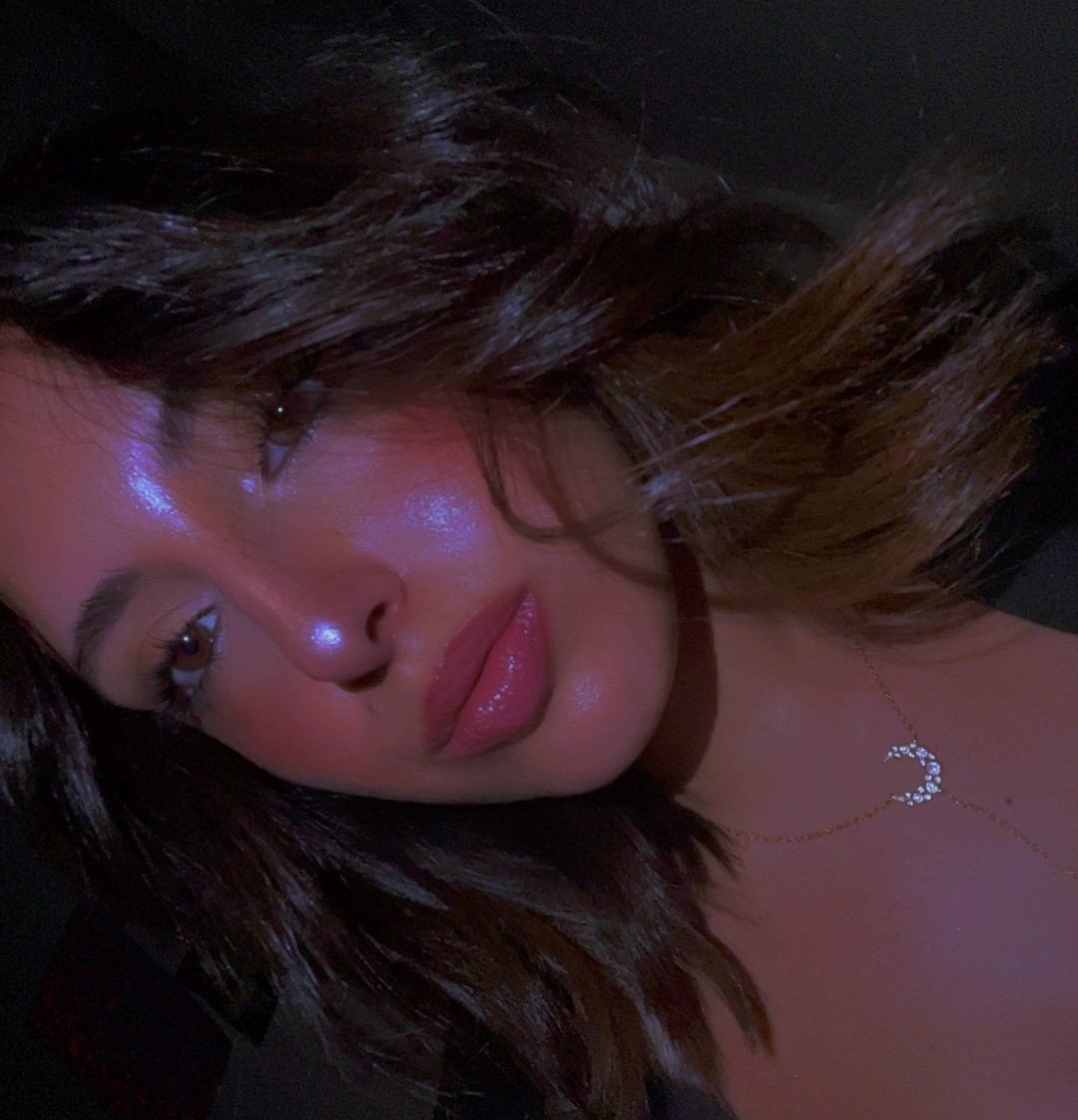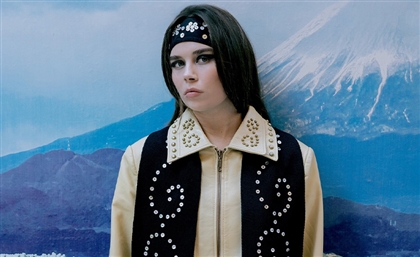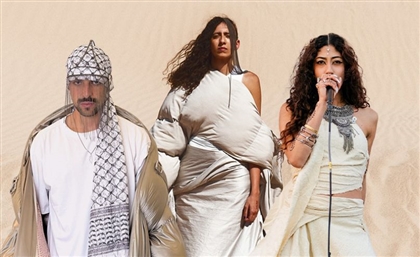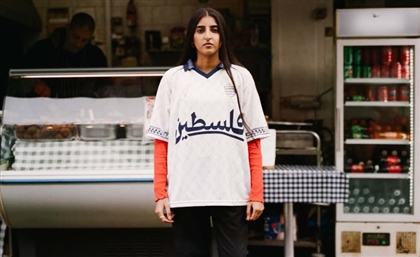Lune De Cairo Unveils Sunset-Hued Abayas & Kaftans
Lebanese founder and designer Hafyat Hout finds inspiration from the chaos of Cairo's old streets and bustling souks.
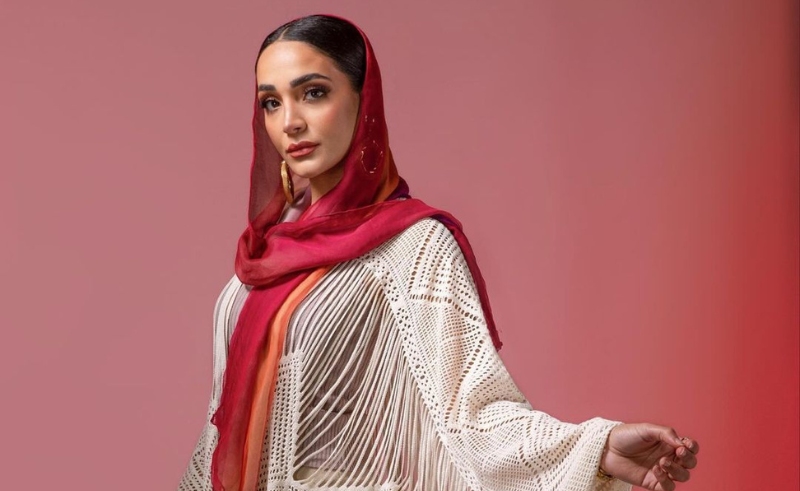
Beneath the luminous glow of Cairo’s moon, Lune De Cairo unveils their first collection of abayas and kaftans, a canvas dipped in the fiery hues of dusk upon which delicate embroidery dances. Metallic threads whisper of moonlight, while cascades of lace evoke the delicate beauty of desert flowers. Butterfly sleeves flutter with dreams, and double-faced fabrics hint at the duality of faith and celebration.
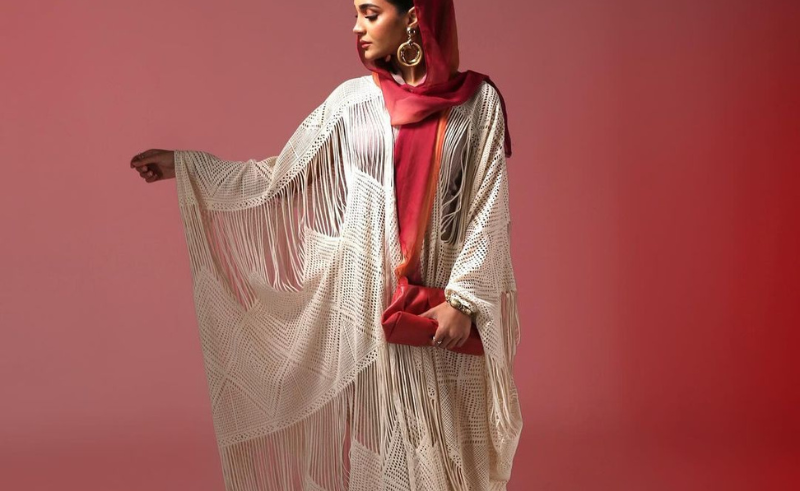 The name itself hints at the brand's romantic essence. ‘Lune De Cairo’ translates to ‘Moon of Cairo’, and the inspiration is as clear as the moonlit sky. The founder envisions each woman draped in their abayas to embody the moon's tranquil beauty – a vision of serenity that transcends the everyday. “As cheesy as it might sound, Lune De Cairo’s main inspiration behind the name is for every girl wearing our abayas to be ’zay el amar’,” Lebanese founder and designer Hayfa Hout explains, evoking the Arabic saying ‘pretty like the moon’.
The name itself hints at the brand's romantic essence. ‘Lune De Cairo’ translates to ‘Moon of Cairo’, and the inspiration is as clear as the moonlit sky. The founder envisions each woman draped in their abayas to embody the moon's tranquil beauty – a vision of serenity that transcends the everyday. “As cheesy as it might sound, Lune De Cairo’s main inspiration behind the name is for every girl wearing our abayas to be ’zay el amar’,” Lebanese founder and designer Hayfa Hout explains, evoking the Arabic saying ‘pretty like the moon’.
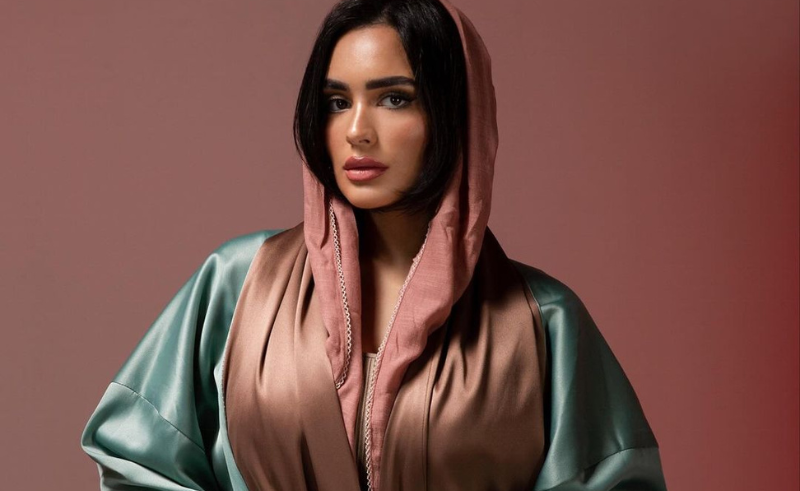 There's a touch of the city's vibrant spirit sewn into every piece. The Lebanese founder and designer finds inspiration from the chaos of Cairo's old streets and bustling souks. It's a nod to the woman who isn't afraid to express herself through fashion, who can be both bold and effortlessly put-together. Lune De Cairo also doesn't shy away from the city's energy. The aesthetic of the brand is a blend of natural elements and the "whimsical, unfiltered beauty" found in Cairo's historic streets, as Hout puts it.
There's a touch of the city's vibrant spirit sewn into every piece. The Lebanese founder and designer finds inspiration from the chaos of Cairo's old streets and bustling souks. It's a nod to the woman who isn't afraid to express herself through fashion, who can be both bold and effortlessly put-together. Lune De Cairo also doesn't shy away from the city's energy. The aesthetic of the brand is a blend of natural elements and the "whimsical, unfiltered beauty" found in Cairo's historic streets, as Hout puts it.
 “Although I’m originally Lebanese, a piece of my heart will always be Egyptian, having been born and raised in Cairo, so in a way, Lune De Cairo is my homage to this country that offered me all it has,” Hout says. The founder dreams of her brand becoming synonymous with the city's hidden beauty – the culture, the people, the unique experiences that make Cairo what it is. “My hope is for my pieces to remind people of Cairo, and for Cairo to remind people of my pieces.”
“Although I’m originally Lebanese, a piece of my heart will always be Egyptian, having been born and raised in Cairo, so in a way, Lune De Cairo is my homage to this country that offered me all it has,” Hout says. The founder dreams of her brand becoming synonymous with the city's hidden beauty – the culture, the people, the unique experiences that make Cairo what it is. “My hope is for my pieces to remind people of Cairo, and for Cairo to remind people of my pieces.”
 Constantly traversing between Beirut and Cairo, Hout personally sources the finest fabrics from both cities. “Most of the time, that means you’ll find me deep down in Cairo’s busiest streets, rummaging left and right to find that one piece of fabric that has the potential to be transformed,” Hayat says.
Constantly traversing between Beirut and Cairo, Hout personally sources the finest fabrics from both cities. “Most of the time, that means you’ll find me deep down in Cairo’s busiest streets, rummaging left and right to find that one piece of fabric that has the potential to be transformed,” Hayat says.
 The sunset-kissed hues of the collection are much like the long-awaited dusk of Ramadan. The rich texture of tweed in the collection adds a touch of earthly charm, expanding the collection’s variety of fabrics. Much of the collection relies on sequins and embellishments, twinkling like a starlit sky.
The sunset-kissed hues of the collection are much like the long-awaited dusk of Ramadan. The rich texture of tweed in the collection adds a touch of earthly charm, expanding the collection’s variety of fabrics. Much of the collection relies on sequins and embellishments, twinkling like a starlit sky.
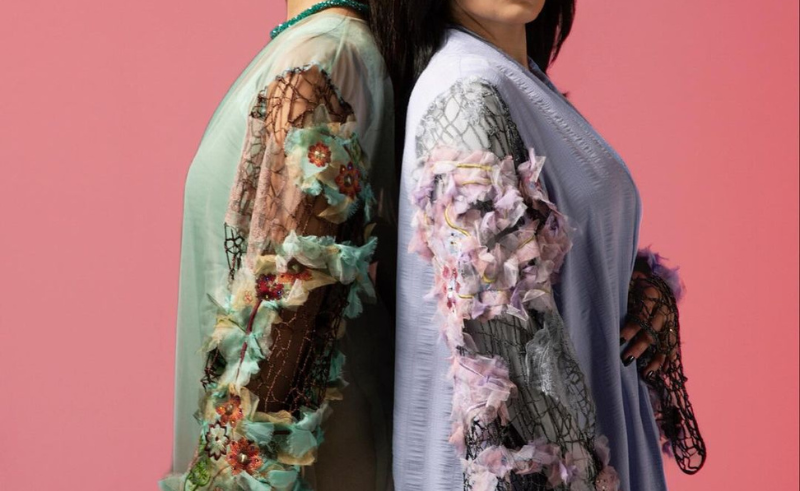 With the initial success of their Ramadan abayas, the brand is poised to expand, planning to offer a wider range of clothing and accessories.
With the initial success of their Ramadan abayas, the brand is poised to expand, planning to offer a wider range of clothing and accessories.
- Previous Article Egyptian Actor Ahmed Malek Joins Global Stars in Cartier Campaign
- Next Article Monochrome Monday: The Electric Blue Edition
Trending This Month
-
Nov 18, 2025
-
Nov 20, 2025

